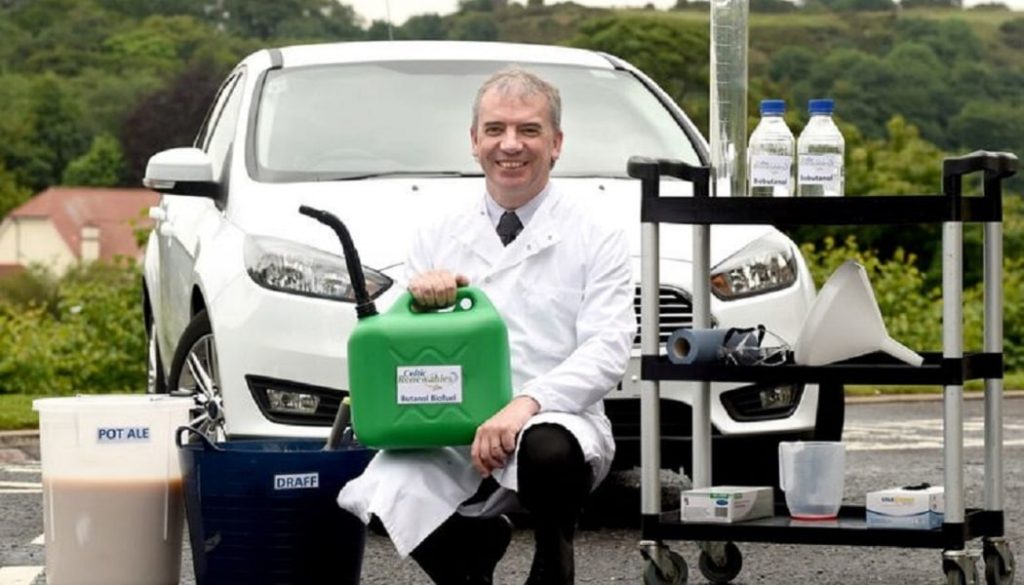

Edinburgh, Scotland – The world’s first whiskey powered car has successfully completed its first test run in Scotland.
Well, whiskey-residue-powered at least. Drivers can’t simply dump a fifth of Cutty Sark into their fuel tanks.
The car runs on a biofuel called biobutanol made from a whiskey residue. The sustainable fuel is used as a direct replacement for gas or diesel. Further, a car does not need to have a modified engine to utilize the biobutanol.
Scotland-based Celtic Renewables created the new biofuel. The company formed as a spinout from Edinburgh Napier University. Celtic Renewables worked closely with Tullibardine Distillery in Perthshire to develop the process.
Celtic Renewals creates the biofuel from draff and pot ale. Draff is the sugar-rich kernels of barley soaked in water while distilling whiskey. Pot ale forms from the yeasty liquid left over following distillation.
Related Search Topics (Ads)
“This is the first time in history that a car has ever been driven with a biofuel produced from whiskey production residues,” said Celtic Renewables founder and President Martin Tangney. “It is fitting to do this historic drive in Scotland, which is famous not just for its world-renowned whiskey but also for being a powerhouse for renewable energy.”
Scottish distilleries produce over 825,000 tons of draff each year, as well as over half a million gallons of pot ale. The residue has no value whatsoever to the whiskey industry. So there’s plenty of resources available to produce the biofuel annually, according to Celtic Renewables.
They plan to convert the refuse into hundreds of thousands of gallons of the advanced biofuel.
“We’re a very forward-thinking distillery, and we’re happy to support what promises to be a groundbreaking first for renewable energy, for transport and for the Scottish whiskey industry alike,” said Tullibardine Distillery manager John Torrance.
The process to use bacterial fermentation to produce biobutanol was originally devised in the United Kingdom during the First World War. However, instead of powering cars the process was used to produce acetone for explosives.
Tangney believes the new biobutanol could be a multi-billion-dollar industry. He also feels the product could quickly turn transportation into a much greener enterprise.
As opposed to having major car manufacturers produce more electric cars, and having government subsidize their purchase, the cars on the road can already use the whiskey-residue-based biobutanol.
Celtic Enterprises didn’t provide details regarding how much its costs to create the biofuel. Certainly that would be a huge factor in determining its large-scale viability.
The Edinburgh-based company recently received a $10 million government grant to build a commercial demonstrator plant in Grangemouth. The facility should be fully operational by 2019.
Related Search Topics (Ads)